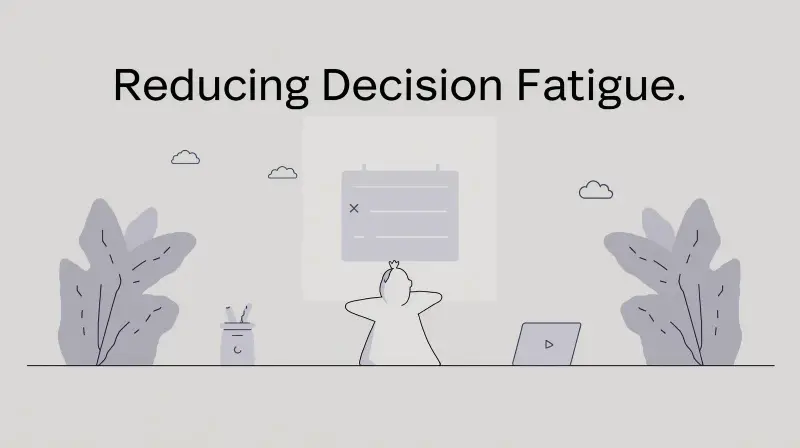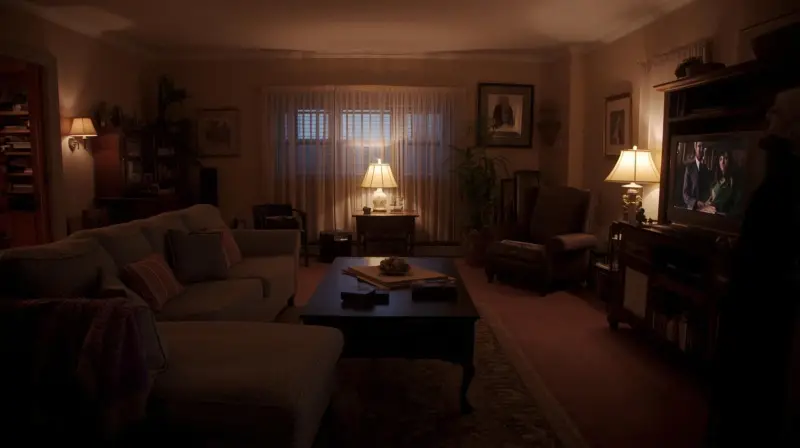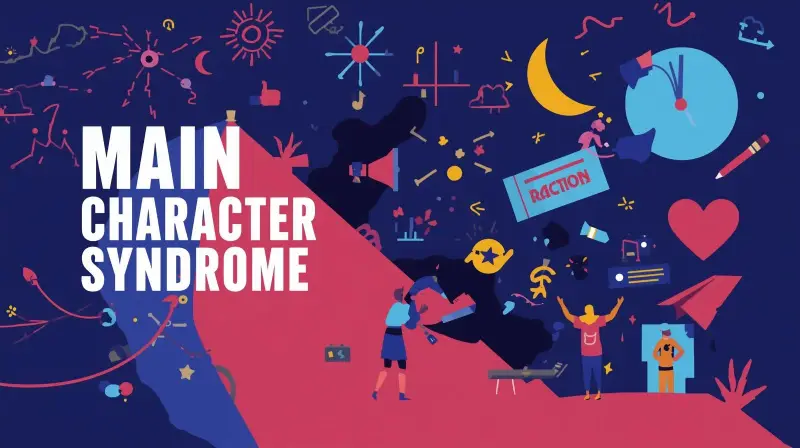I have watched Friends and The Office more than five times, and even though I can predict every comeback and joke, it still feels just as entertaining. Honestly, I do not think I would get bored even if I watched it ten more times. Sometimes, when I am sad or just need something to watch while eating, I go back to my comfort shows. I know they will work every time. But recently, I started wondering if there is something deeper at play. Maybe some kind of “unagi” is pulling me back to these shows. Why is it so much easier to rewatch something familiar than to try a brand-new show?
Let’s pull back the curtain and see what is actually happening in your brain and heart when you press play on that familiar show yet again.
Brain Craves the Known

One of the strongest reasons people rewatch comfort shows is predictability. In a world that feels uncertain, our minds find relief in things we can control. When you know exactly what will happen in a story, your brain feels safe. This is “processing fluency” which is the ease with which we process information. When a show is familiar, your brain needs less effort to understand it. This reduces cognitive load and helps you relax. New shows demand patience, understanding of a plot, relating with the characters or processing to love them and anticipating every action. Although we can watch new shows, rewatching looks a better option when we are in rush.
A study from the University of Chicago found that people often revisit familiar media when they are feeling stressed because the lack of surprises makes the experience soothing. Unlike real life, you can trust that the conflicts in your show will be resolved in the same way they always have.
Nostalgia and the Warm Glow of Memory

Nostalgia is not just a sentimental longing for the past. It has real psychological benefits. Studies show that nostalgic feelings can improve mood, increase self-esteem, and make you feel more connected to others.
When you watch a show you loved during a certain stage of life, your brain links the present moment to the memories of that earlier time. If you watched Gilmore Girls in college, replaying it can bring back the smells of your dorm room, the friends you spent time with, or even the feeling of who you were back then. Neurologically, nostalgia triggers the brain’s reward system. Dopamine, the “feel-good” chemical, gets released, creating a small burst of happiness. The more times you revisit those shows, the stronger the emotional connection becomes.
Forming a Parasocial Relationships

A big part of comfort shows is the relationship you feel with the characters. Psychologists call these parasocial relationships. They are one-sided bonds where you feel emotionally invested in people who do not know you exist, such as actors, fictional characters, or even TV hosts. Rewatching strengthens these bonds. You may know that Lorelai Gilmore or Jim Halpert is not real, but your brain treats them like old friends. Seeing them again is like catching up with someone you have known for years. These relationships can be especially comforting during lonely or transitional periods in life. They provide a stable presence when other relationships may be changing.
The Role of Dopamine and the Brain’s Reward System

When you watch a show you love, your brain anticipates moments of pleasure. This anticipation itself releases dopamine. That is why you may feel a small rush even before your favorite scene begins. New shows can also release dopamine, but they carry uncertainty. You do not know if the story will disappoint you. Comfort shows remove that risk. You can count on your favorite moments delivering the same emotional payoff every time. Neuroscientists suggest that the predictability of reward is a key factor in why we rewatch. Your brain is wired to seek experiences that reliably make you feel good.
Reducing Decision Fatigue

Modern life is full of decisions, big and small. From the moment you wake up, you are making choices. What to wear. What to eat. How to respond to that tricky email. Whether to work out or skip it. By the time evening comes, your brain has already been through hundreds of micro-decisions. Psychologists call the mental exhaustion that builds up from all these choices “decision fatigue.”
When you are tired from a day of constant decision-making, even small choices can feel like heavy lifting. Picking a new show to watch may not seem like a big deal, but it still demands effort. You have to scroll through endless thumbnails, read descriptions, weigh reviews, and decide if you are ready to commit hours to an unfamiliar story. If it turns out to be boring or disappointing, you feel like you wasted your precious downtime. A comfort show removes all that friction. There is no guessing game, no risk. You already know the story will give you what you want. This is why, after a long or stressful day, your hand automatically goes to the series you have seen dozens of times.
The Effect of Nostalgia

Nostalgia is often dismissed as a simple longing for “the good old days,” but science shows it is much more than that. It is a mental time machine, one that can have genuine psychological benefits. Research has found that nostalgic feelings can lift mood, reduce feelings of isolation, increase self-esteem, and even help people cope with uncertainty.
When you watch a show you loved during a specific chapter of your life, you are revisiting a version of yourself. The brain naturally links sensory details from the present with those stored memories. A certain background song, the color palette of a scene, or even a character’s laugh can pull you straight back to a dorm room with the window open to autumn air, a cramped apartment with takeaway containers on the coffee table, or a childhood living room with the smell of dinner drifting in. Shows like Gilmore Girls, Friends, or That ‘70s Show often become emotional bookmarks in people’s lives. When you rewatch them, you are not only remembering what happened on screen, you are recalling who you were, who you were with, and how you felt back then.
Comfort Becomes a Coping Mechanism

For most people, rewatching comfort shows is a harmless, even healthy ritual. It is a way to unwind after a long day, to fill a quiet room with familiar voices, or to relive moments that bring joy. But like any form of comfort, it can slide into avoidance if it becomes your only form of entertainment. whether you are seeking comfort or avoiding growth. Sometimes sticking to what you know feels safer than facing the possibility of disappointment. But growth often requires the discomfort of novelty. Watching the same show gives us a sense of comfort, like at the end of the day you have something to return to. It’s ok if you feel like this but one should not use this habit to escape or suppress emotions. Find other ways to cope with your situation but if rewatching your comfort show gives you happiness, have your way!
How Streaming Platforms Have Made It Easier

Rewatching comfort shows used to take effort. You had to wait for TV reruns, hope the right episode was on, or invest in DVD box sets and keep them handy. There was a certain ritual to it, but it also meant your options were limited. If you missed a time slot, that was it until the next cycle.
Streaming platforms have completely changed that. Now, your comfort shows are always a few clicks away. You can start from episode one, jump straight to a favorite scene, or pick up exactly where you left off without even remembering the episode number. Technology has removed every barrier between you and the instant gratification of familiarity. Some platforms even collect your watch history for years, resurfacing shows you may have forgotten you loved. That little spark of recognition when you see an old title can be enough to pull you back in.
This convenience matters because comfort viewing is often an impulse decision. You might sit down for “just a few minutes” of something familiar after work or while eating lunch. Without streaming, the friction of finding the right episode might have stopped you. Now, it is almost effortless.
Conclusion
Rewatching comfort shows is not a sign of laziness or lack of imagination. It is a deeply human behavior rooted in psychology, neuroscience, and the desire for connection. These shows offer predictability in a world that often feels chaotic. They can calm a racing mind, soothe a heavy heart, and transport us back to moments that shaped who we are. In many ways, comfort shows are like well-worn blankets for the mind. They wrap us in familiarity, carry the scent of old memories, and remind us that not everything has to be new to be meaningful. Whether it is laughter, nostalgia, or a quiet sense of belonging, we all need emotional shelter from time to time.



